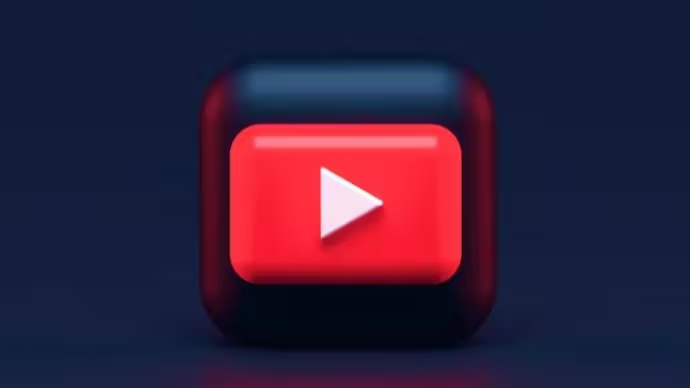In today’s digital age, the rapid advancement of technology and the widespread use of social media have transformed how we communicate, share, and consume content. While these developments have created numerous opportunities for connectivity, they have also given rise to significant ethical and privacy concerns, particularly surrounding the issue of private leaked videos. This article explores the implications of such leaks, the emotional and legal repercussions for individuals involved, and the broader societal consequences.
Understanding Private Leaked Videos
Private leaked videos refer to footage that was not intended for public viewing but has been shared without the consent of the individuals depicted. This can include intimate recordings, personal conversations, or any content meant to be kept private. Such leaks can occur through various means, including hacking, unauthorized sharing by individuals, or breaches of trust among acquaintances.
The reasons for sharing these videos vary, ranging from revenge and harassment to sheer malice. Regardless of the motivation, the consequences can be devastating for those affected.
The Emotional Toll on Victims
The emotional impact of having a private video leaked can be profound. Victims often experience a range of feelings, including:
- Shame and Humiliation: Being exposed in a vulnerable state can lead to intense feelings of shame. Victims may feel that their privacy has been violated, resulting in a loss of control over their personal narrative.
- Anxiety and Depression: The stress of public exposure can trigger mental health issues. Victims may struggle with anxiety, depression, and even post-traumatic stress disorder (PTSD) as they cope with the fallout.
- Social Isolation: Many victims face ostracism from their peers, friends, or family due to the stigma associated with leaked content. This isolation can further exacerbate their emotional distress.
- Fear of Future Consequences: Victims often worry about how the leak may affect their future, including personal relationships, job prospects, and social standing. This fear can hinder their ability to move on.
Legal Repercussions
The unauthorized sharing of private videos can also lead to significant legal issues. While laws vary by jurisdiction, several key legal concepts often come into play:
- Invasion of Privacy: Many regions have laws protecting individuals from invasions of privacy, which can include the unauthorized dissemination of private recordings. Victims may pursue legal action against those who leaked the videos, seeking damages for emotional distress and reputational harm.
- Cyberbullying and Harassment Laws: In cases where leaked videos are used to harass or intimidate individuals, victims may find recourse under cyberbullying or harassment laws. This can include penalties for the perpetrators.
- Intellectual Property Laws: If the video contains copyrighted material or was produced as part of a professional endeavor, the victim may have additional grounds for legal action.
- Platform Policies: Many social media platforms have policies against sharing non-consensual content. Victims can report the leaks to these platforms, which may lead to the removal of the content and potential bans for the individuals responsible for the leaks.
The Role of Technology
The role of technology in the spread of private leaked videos cannot be understated. Advancements in smartphone technology and social media have made it easier than ever to record, share, and disseminate content. Some of the critical factors contributing to the issue include: https://xvids.click/
- Ease of Recording and Sharing: The widespread availability of smartphones equipped with high-quality cameras enables individuals to easily record videos. Social media platforms facilitate the rapid sharing of these recordings, often without proper oversight.
- Lack of Digital Literacy: Many individuals, particularly younger users, may lack an understanding of the long-term implications of sharing content online. This lack of awareness can lead to poor decisions regarding privacy and consent.
- Anonymity and Impunity: The internet provides a degree of anonymity, which can embolden individuals to share private content without fear of repercussions. This anonymity can make it challenging for victims to seek justice or hold perpetrators accountable.
Societal Consequences
The phenomenon of private leaked videos has broader societal implications as well. These consequences can affect not only the individuals directly involved but also the culture surrounding privacy and consent:
- Normalization of Non-Consensual Sharing: The prevalence of leaked videos can create a culture where non-consensual sharing is normalized. This normalization may desensitize individuals to the ethical considerations of consent, leading to a disregard for personal boundaries.
- Victim Blaming: In many cases, victims of leaked videos face blame for the violation of their privacy. Society may question why they recorded the video or shared it with someone else, shifting responsibility away from the perpetrator. This victim-blaming mentality perpetuates stigma and makes it harder for victims to seek help.
- Chilling Effects on Expression: The fear of having personal content leaked can discourage individuals from expressing themselves authentically. This chilling effect may stifle creativity and vulnerability, leading to a less open and connected society.
- Calls for Stronger Regulations: The growing prevalence of private leaked videos has prompted discussions about the need for stronger regulations and protections. Advocates for change argue that legislation must catch up with technology to safeguard individuals’ rights and privacy.
Prevention and Awareness
Addressing the issue of private leaked videos requires a multifaceted approach involving education, awareness, and legal reforms. Some strategies to consider include:
- Education on Digital Privacy: Increasing digital literacy can empower individuals to understand the implications of sharing content online. Educational programs should focus on consent, privacy settings, and the long-term consequences of online actions.
- Stronger Legal Frameworks: Governments should consider enacting laws that specifically address non-consensual sharing of private content. These laws should include clear definitions of consent and penalties for violations.
- Support for Victims: Establishing support networks for victims of leaked videos is essential. These networks can provide emotional support, legal guidance, and resources for navigating the aftermath of such violations.
- Encouraging Responsible Sharing: Social media platforms can play a role by promoting responsible sharing practices. Initiatives that raise awareness about consent and privacy can help shift the culture surrounding the sharing of personal content.
Conclusion
The issue of private leaked videos underscores the complex interplay between technology, privacy, and ethics in our digital society. As individuals navigate the challenges of online sharing, it is crucial to prioritize consent and respect for personal boundaries. By fostering a culture of awareness and accountability, we can mitigate the emotional and legal repercussions of private leaks, ultimately creating a safer and more respectful digital environment for all. The conversation surrounding privacy and consent is ongoing, and collective efforts are essential in addressing these critical issues.



